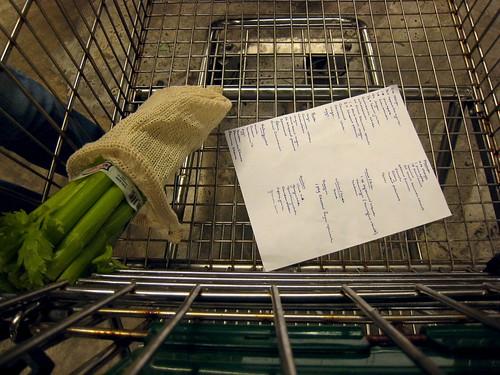 I’ve talked before about how I’m all for frugality, but sometimes things can get a little too extreme for me.
I’ve talked before about how I’m all for frugality, but sometimes things can get a little too extreme for me.
I came across another example this weekend as I was flipping through my latest issue of All You magazine. It’s a great mag with lots of money saving and household tips, but every once in a while, I’ll see something that makes me think “good idea, but not for me.”
Specifically, there was an article on price books…manuals that savvy shoppers create to track the price of items they purchase across several different stores, as well as tracking when certain items tend to go on sale (grocery stores have sales cycles you can learn to track annually when you get the hang of it). It makes sense in theory, but for me, it doesn’t really seem realistic. Here’s my breakdown:
Pros & Cons
Pros:
- You can tell if a sale is worth buying because you always know just how cheap you can get something for.
- You also know which stores offer the cheapest price so you can shop strategically.
- You know what point of the year is bargain time for an item, so you can stock up on it then when it’s cheapest.
- Combining coupons with these sales cycles can net you extra savings.
- Once you set it up and get into the swing of it, it apparently doesn’t take a ton of time to upkeep.
- If you save your price book digitally (like a spreadsheet on your iPhone), you can consult it easily in-store.
Cons:
- It can take a lot of time to set up. To really get a handle on sales cycles, you need to track prices for months, then enter all that data into your price book. When you think of all the grocery, household, and personal items you buy regularly, that can really add up.
- You need to figure out what the unit prices are, not the item price. This can mean going to the stores and looking for unit prices on the price labels on the shelves, or doing some math yourself if they’re not clearly marked.
- How do you organize it? The All You article showed three options: binder organized by item, binder organized by store, and spreadsheet organized by store. I don’t know which of these would be best for me. I feel like a spreadsheet organized by item and store would be the easiest for me to reference, but that sounds pretty complicated.
- If you go with the binder method, it can be awkward to lug it around in stores and you run the risk of dropping/losing it and ruining all your hard work.
- Most shoppers interviewed spend a couple hours a month updating their price lists, but you also need to be aware of things like droughts that could impact produce prices. This can throw your whole list out of whack if you’re not aware of them.
- I also worry about having to go from store to store to store to get whatever items are the cheapest there that week…I wonder if the time and gas spent would outweigh any savings.
My Verdict
For me, it just sounds like too much work, but if you’re really into couponing and other methods, it might be worth it for you. I guess it all depends on the person.
What do you think? Could you see yourself using a price book, or does it seem like too much effort?
~Heart,
Em
—–
photo credit: Bruce Turner







definitely too much effort. I don´t have time to sit down and write down the price of every little thing. I always shop at a cheap grocery store, where I know the prices are low . that´s good enough for me!
I agree. I have an idea in my head of how much our usual stuff costs, so I think I’m pretty good by now at knowing when something is a good deal. I’d rather save myself the time and energy than save an extra few bucks here and there…to me, I guess it’s just not a “balanced” tradeoff. 🙂
It would be worth it for more expensive things? I think I’ll try a very abbreviated version.
Not a bad idea!
I did it to get a handle on what prices were across various stores (when I first got a costco membership) and I reference it from time to time to see what price I should be shooting for with some of the things I don’t buy too often but I would never be able to keep up with it regularly.
That’s a good balance. I do like the idea in theory, but I agree that regular upkeep would be too much for me. Maybe a toned-down version of it like you have is something I could do.